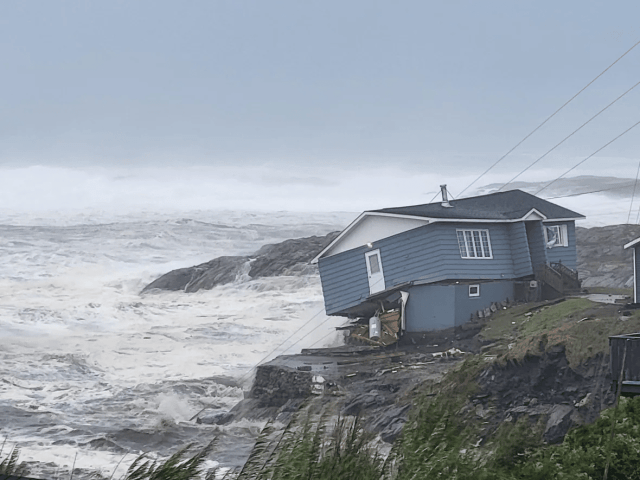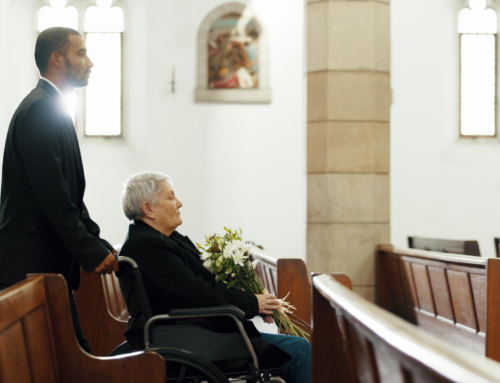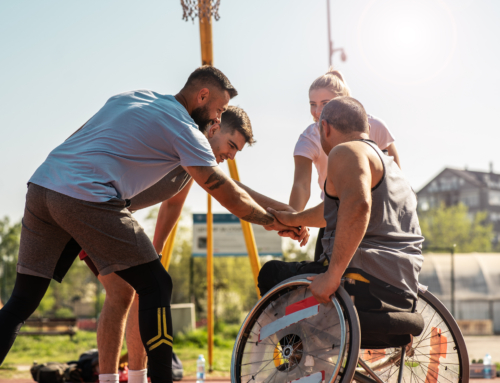by Dwayne Milley – October 2, 2022
The world is broken, it seems. I’m typing these words after watching the devastation of Hurricane Fiona on the east coast of Canada, particularly interested in the province of my childhood, Newfoundland. And even as people are recovering from Fiona, Hurricane Ian is wreaking havoc on the southeastern United States.

At Christian Horizons, we have partnerships in other countries which make us more attuned to matters there. In Ethiopia, long before the war in Ukraine, there was civil war and people being killed, and today they’re experiencing a drought that is taking its toll on the people there. In Guatemala, we learned about a sinkhole on a major roadway that took the lives of several people and is now making travel very challenging. And of course, as mentioned, the war in Ukraine.
We have friends in Western Ukraine who founded Agape House, a place to support people with physical and developmental disabilities. When the war started there, they helped everyone they supported to get transportation across the border to safety. I have another friend there who regularly posted to Instagram the horrors the people of Ukraine were experiencing.
In all these situations, as awful as they are for the typical citizen, the difficulty is compounded for people with disabilities. I don’t think I need to type all the ways that it is more challenging for people with disabilities – it should be obvious. For a person fleeing war, if they need support to be mobile, they are depending on someone else to help them flee. For a person in a drought, if they already experienced food scarcity and they were someone who could not physically farm their own land, they will risk starvation before others.
Thinking about these things, and considering other challenges I am witnessing and experiencing, I went looking for this verse – perhaps in a form of escapism and coping –
‘After these things I saw a large crowd from every nation, tribe, people, and language. No one was able to count how many people there were. They were standing in front of the throne and the lamb. They were wearing white robes, holding palm branches in their hands, and crying out in a loud voice, “Salvation belongs to our God, who sits on the throne, and to the lamb!”
All the angels stood around the throne with the leaders and the four living creatures. They bowed in front of the throne with their faces touching the ground, worshiped God, and said, “Amen! Praise, glory, wisdom, thanks, honor, power, and strength be to our God forever and ever! Amen!” ‘ Revelation 7:9-12 (GWT)
It was encouraging to me to think about the unity in the diversity that is on display here. John the Revelator’s vision was of all sorts of different people, with differences aside, together in unity. They were so unified that even the angels agreed and responded to their proclamation.
I don’t know if this was a vision of hope for John, or one that showed him a future, literal state of what is to come. I do know that this idea of unity, that people are not fighting or succumbing to the tragedy of the day, is deeply encouraging to me. It is the hope that one day, things will be right.
But what is “right”? Chantal Huinink regularly reminds me to read the Bible through the lens of disability. Considering that, the thing that stood out to me most was how John understood all these people who were speaking their own languages. While language difference isn’t a disability, it is a barrier to understanding and belonging. In this vision, different languages were not a barrier – John understood. This seems ‘right’, that we could and should work to understand people as they are, and not as we want them to be.
This vision of what can be is something I long for. It’s as if I’m nostalgic for what will be, and not what was. These days, diversity in nation, tribe, people, and language are things that keep us apart. In John’s vision, it is honoured and celebrated and a symbol of unity.
On a nostalgic note, recently I bought a record player and decided to collect some old vinyl records. One album I picked up is by Wayne Watson from 1980. He sings a song called, “One Day”, written by Phil McHugh. The chorus goes like this:
One day Jesus will call my name,
As days go by, I hope I don’t stay the same.
I wanna get so close to Him that it’s no big change,
On that day that Jesus calls my name.
I’m not concerned about all the possibilities of what it means that Jesus will ‘call my name’. Rather, it’s the line, ‘I wanna get so close to him that it’s no big change’. Going back to John’s vision above, I want to behave in a way now, to change for the better, such that barrier-free unity is a reality for me, something I practice and promote, and isn’t much of a surprise ‘on the day that Jesus calls my name’, or when John’s vision is fully realized.
Are the things I’m doing today representative of the life I want to live, the world I want to live in? I long for the day when all of us, in all our differences, whether they are in our languages, political leaning, culture, ability or disability, or more, live together in unity. Therefore, I commit to working to remove barriers wherever I go.



